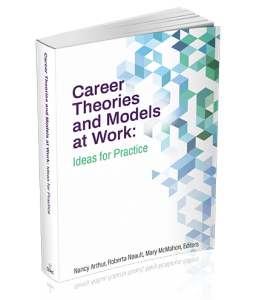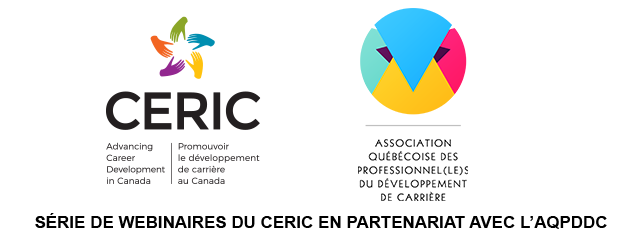RÉFÉRENCES EN FRANÇAIS
Atiq, M., Coutinho, A., Islam, A., et McNally, J. (2022, mai). Étude prospective sur l’emploi et les compétences durant la transition vers une économie carboneutre. Centre des Compétences futures.
Barria, C. (2020). Cinq changements majeurs qui vont révolutionner l’emploi dans les années à venir. BBC News.
Bonot, A., (2021). Quel avenir pour le travail après la pandémie? Le Devoir.
Cafley, J. Davey, K., Saba, T., Blanchette, S., Latif, R., Sitnik, V. (2020). L’égalité économique dans un monde en évolution : éliminer les obstacles à l’emploi des femmes. Forum des Politiques Publiques.
Centre des Compétences futures (2020). S’adapter au monde du travail en pleine évolution.
CEPA (2022). L’avenir du travail au Canada atlantique. Conseil économique des provinces de l’Atlantique.
Chambre de commerce de l’Ontario, Fédération des chambres de commerce du Québec, Saba, T., Blanchette, S. (2020). Petits et moyens employeurs (PME) : lacunes en matière de compétences futures. Forum des Politiques Publiques
Clédat, J., Vitaud, L. (2021). Futur du Travail: les 10 tendances RH à suivre en 2022. Welcome to the Jungle.
Comité Consultatif Ontarien de la Relance du Marché du Travail (2021). L’avenir du travail en Ontario
Cukier, W. (2020). Retour sur investissement : l’industrie comme leader en matière de perfectionnement et de réorientation des effectifs. Forum des Politiques Publiques.
De Vuajany, F-X., Bohas, A., Leclercq-Vandelannoite, A., Fabbri, J., Carton., S. (2018). À quoi ressemblera le travail en 2030. The Conversation.
Deloitte (n.d.) L’avenir du travail. Guide de réorientation
Dharmaratne, V., Hamel, R., Harrop, D., Lauer, R., Moore, C., Qi, A., Xie, A., Robertson, W. (n.d.). L’avenir du travail
Drolet, M. (2022).
Mise au jour des différences au chapitre de l’emploi à temps plein chez les femmes. Regards sur la société canadienne. Statistique Canada.
Ellingrud, K. (2021). Quel avenir pour le monde du travail après la pandémie?. Forbes.
Gooch, E., Chaktsiris, M., Jae, K., Patterson, L., Suleman, S., Urban, M. C., Cukier, W., Luke, R. (2022).
L’avenir est dans les micro-titres de compétences : apprentissage numérique et micro-titres de compétences pour l’éducation, la rétention et l’apprentissage permanent. Centre des Compétences futures.
Gyarmati, D., Lane, J., Murray, S. (2020). Cadre des compétences et compétences essentielles du Canada. Forum des Politiques Publiques.
Harrington, S., Cukier, W., Patterson, M., McCallum, K.E. (2020). La technologie au service de l’innovation dans l’écosystème des compéténces et de l’emploi. Forum des Politiques Publiques.
Hazan, J., (2022). L’avenir du travail? Plus humain. Bain & Company.
Horizons de politiques Canada (2019). L’avenir du travail : Cinq facteurs qui changent la donne. Gouvernement du Canada.
L’équipe éditoriale d’Indeed (2023). Le futur du monde du travail et les métier d’avenir. Indeed Guide de carrière.
Lasalle, M. (2022). Après deux ans de pandémie, quel avenir pour le télétravail et le travail en mode hybride?. UdeM Nouvelles.
Centre des Compétences futures (2022). Le marché du travail de demain : Projections du Modèle des professions, des compétences et des technologies
Lévesque, C., Bowkett, C. (2021). Industrie 4.0, l’avenir du travail et des compétences. Observatoire International sur les Impacts Sociétaux de l’IA et du Numérique.
Lowe, G., Hughes, K. (2023). Façonner l’avenir du travail au Canada : Au-delà de la pandémie de COVID-19. Centre des Compétences futures
Malone, M. (2021). L’avenir du travail dans un monde post-pandémie. BMO.
Organisation internationale du Travail (2019). <>Travailler pour bâtir un avenir meilleur.
Organisation internationale du Travail (2022). <>La reprise de l’emploi des jeunes tarde à se faire sentir, selon l’OIT
Oschinski, M., Felder, M. (2023). <>Qualité de l’emploi de la main-d’oeuvre contingentée au Canada. Centre des Compétences futures.
Poloz, S.S. (2018). <>Le marché de l’emploi d’aujourd’hui et l’avenir du travail. Banque du Canada, Discours dans la Conférence David Dodge sur le finances publiques de 2018.
Rédaction Start, <>Futur du travail : attention, chantier en cours, Les Echos.
Rivera, D., Thornton, J., (2019). <>Signes des temps : Perspectives et réflections d’experts sur l’emploi en 2030. Brookfield Institute for Innovation+ Entrepreneurship.
Rivera, D., Zachariah, J., Rajabi, Y., Willoughby, R. (2020). <>Une Décennie D’avance : L’emploi en 2030. Brookfield Institute for Innovation+ Entrepreneurship.
Robert, P-Y., (2021). <>L’avenir du travail, une question de bien-être. Le Devoir.
Russek, H., Thornton, J., Elias, D. (2021). <>Bats-toi, signe et persiste: Que vous réserve le marché de l’emploi au Canada après la pandémie de COVID-19? Brookfield Institute for Innovation+ Entrepreneurship.
St-Cyr-Leroux, B. (2022). <>Les jeunes générations changent le visage du marché du travail. UdeM Nouvelles.
Thornton, J., Russek., H., O’Neil, T. (2019). <>C’est le début d’un temps nouveau : Changements ayant une incidence sur l’avenir de l’emploi au Canada. Brookfield Institute for Innovation+ Entrepreneurship.
Turits, M. (2022). <>Emploi : les 6 plus grandes leçons sur la travail en 2021. BBC News Afrique.
Vu, V. (2022). <>De plus en plus loin : Le potentiel numérique sous-exploité du Canada. Brookfield Institute for Innovation+ Entrepreneurship.
Vu, V., Abuallail, I. (2022). <>Une course aux côtés des machines : Tendances de la numérisation des emplois au Canada, 2006-2021. Brookfield Institute for Innovation+ Entrepreneurship.
WeWork (2021). <>L’avenir du travail est hybride : voici à quoi il ressemblera.
Williams, T., Barata, P. (2022). <>La qualité du travail va au-delà du salaire. Policy Options.
World Economic Forum (2023). <>Future of Jobs Report
Zahidi, S., (2023). <>L’avenir de l’emploi à l’èrede l’IA, du développement durable et de la démobilisation. La Tribune.
ENGLISH REFERENCES
Advisory Council on Economic Growth. (2017). Learning Nation: Equipping Canada’s Workforce with Skills for the Future. Government of Canada.
Ahmad, A. (2021). Opinion: 20 years, 20 predictions: How Canada’s future is linked to technology. Toronto Star
Ahmad, T. (2020). Scenario based approach to re-imagining future of higher education which prepares students for the future of work. Higher Education, Skills and Work-Based Learning, Vol. 10(1): 217-238 (Behind paywall).
Alexander, C. (2016). Job One is Jobs: Workers Need Better Policy Support and Stronger Skills. C.D. Howe Institute.
Andersen, J.J. (2018). 9 Research-Based Facts That Prove Remote Teams are the Future of Work. TimeDoctor Blog.
Annunziata, M. (2015). The Future of Work. A Collection of Research. Medium.
Arntz, M., Gregory, T. & Zierahn, U. (2017). Revisiting the risk of automation. Economic Letters. 159: 157-160. (behind paywall)
Arthur, M.B., (2021). Helping future workers be ready for the future of work. Forbes.
Ascione, L. (2018). 7 ways AI will shape the future of education and work. eCampus News.
Aspen Institute, (2016). Toward a New Capitalism: The promise of opportunity and the future of work. Aspen Institute.
Autor, D., Solomons, A. (2018). “Is Automation Labor-Displacing? Productivity Growth, Employment and Labor Share”, Forthcoming as Brookings Paper on Economic Activity.
Bahl, M. (2017). What will be the most important business skill of the next decade? Being a Better Human. Dynamic Business.
Balliester, T., and Elsheikhi, A. (2018). Future of Work: A Literature Review. International Labour Organization. Working Paper no. 29.
Behnoush, A. (2018). Bridging the knowledge gap in the future of work: A Canadian perspective. Labour Market Information Council .
Bersin, J. (2016). Everything is Becoming Digital: Talent, Business and HR predictions for 2017. Forbes.
Bersin, J. (2016). The Future of Work: It’s Already Here – – And Not as Scary as You Think. Forbes.
Bessant, J. (2018). The future of work will not be full-time. The Sydney Morning Herald.
Biswas, S. (2018). 4 Trends Shaping the Future of Work. HR Technologist.
Blit, J., St. Amand, S., Wajda, J. (2018). Automation and the Future of Work: Scenarios and Policy Options. Centre for International Governance Innovation.
Boston Consulting Group, (2018). Eight Futures of Work: Scenarios and their implications. World Economic Forum.
Boston Consulting Group, (2018). Towards a Reskilling Revolution. A Future of Jobs for All. World Economic Forum.
Boudreau, E, (2020). Future of Education: Leading for Equity. Harvard Graduate School of Education.
Boudreau, J. (2016). Work in the Future Will Fall into these 4 Categories. Harvard Business Review.
Branson, R. (2018). Five things you need to know about the future of work. Virgin Unite
Brown, R. (2018). Action! Fearless Youth and the Future of Work. Cognizant.
Campbell, K. (2023). Working Together for a Sustainable Future: FSC Net-Zero Events Summary. The Conference Board of Canada.
Campos, L. (2018). The future of work in the AI and ML context. ITProPortal.
Caputo, P., Soderberg, M., Crowley, E., Daher, M. (2023). Navigating toward a new normal. Deloitte.
Cassells, R., Duncan, A., Mavisakalyan, A., Phillmore, J., Seymour, R., Tarverdi, Y. (2018). Future of Work in Australia. Bankwest Curtin Economics Centre.
Chester, K. (2018). The future of work: is it something completely different? Mandarin.
Chuah, L.L., Loayza, N.V., Schmillen, A.D. (2018). The Future of Work: Race with-not against-the Machine. The World Bank.
Daheim, C., Wintermann, O. (2018). 2050: The Future of Work. Bertelsmann Stiftung.
David, H. (2019). Work of the Past, Work of the Future. American Economic Association Papers and Proceedings. Vol. 109: 1-32.
De Bruyne, E., Gerritse, D. (2017). Exploring the Future Workplace. Results of the Futures. Ideas.
Dehaze, A. (2017). Develop talent, connect and shape the future of work: A call for responsible leaders. World Economic Forum.
Delgado, M. (2018). What Impacts Workers’ Optimism About the Future of Work? Clutch.
Deloitte, (2018). The Intelligence Revolution. Future-proofing Canada’s workforce. HRPA
Deloitte. (2018). Predicting the Future of Work: Preparing for an Uncertain Tomorrow. MIT Technology Review.
Document and Publications Production. (2018). Inception Report for the Global Commission on the Future of Work. International Labour Organization.
Dowling, B., Goldstein, D., Park, M., Price, H. (2022). Hybrid work: Making it fit with your diversity, equity, and inclusion strategy. McKinsey & Company.
Elias, D. (2021). The future of work in Canada: 5 emerging sectors to watch. CareerWise.
Ellis, J. (2018). The Future of Work Isn’t Tech and AI. It’s Artists and Cogs. ERE.
Estrada, S. (2023). How the workforce of the future will be more like an “ecosystem”. Fortune
Evans-Greenwood, P., Marshall, A., Ambrose, M. (2018). Reconstructing jobs. Creating good jobs in the age of artificial intelligence. Deloitte.
Fields, A., Uppal, S., & LaRochelle-Cote, S. (2017). The impact of aging on labour market participation rates. Statistics Canada.
Fitzpayne, A. (2018). Future of Work Initiative Event Explores Public and Private Sector Solutions to Financial Challenges Faced by Independent Workers. The Aspen institute.
Frank, A. (2018). How Artificial Intelligence Will Impact the Future of Work. CMS Wire.
Friedman, Z. (2018). IBM’s HR Chief Shares Best Advise on the Future of Work. Forbes.
Fuller, J., and Sigelman, M. (2017). Room to Grow. Identifying New Frontiers for Apprenticeships. Managing the Future of Work.
Future of Work Initiative. (2017). A Policy Agenda to Restore the Promise of Work. The Aspen Institute.
Future of Work Initiative. (2017). Toward a New Capitalism: The Promise of Opportunity and the Future of Work. The Aspen Institute.
Future Skills Centre (2020). Adapting to the Changing World of Work.
Gardiner, E. (2017). Jobs of the Future: Towards 2030. Spice News.
Gensler, (2018). What might the future look like and how could this reshape our cities? Gensler.
Ghana, P. (2018). The Future of Work. Wired Insider.
Glasnapp, J., Gaitàn, C. (2018). The “office of the future”. PARC
Goos, M. (2013). How the world of work is changing: a review of the evidence. ILO.
Goos, M. (2018). “The Impact of Technological Progress on Labour Markets”, Oxford Review of Economic Policy, Vol. 34 (3): 362-375. (Behind paywall)
Government of Canada (2020). The changing nature of work. Employment and Social Development Canada.
Gownder, J.P., Koetzle, L., Condon, C., McNabb, K., Voce, C., Bartels, Goetz, M., Hoar, A., Garberg, C. Lynch, D. (2017). The Future of Jobs, 2027: Working Side by Side with Robots. Forrester.
Gratton, L. (2018). How Leaders Face the Future of Work. MITSLOAN Management Review.
Gupta, S., Lerner, S., & McCartin, J.A. (2018). It’s Not the Future of Work, It’s the Future of Workers That’s in Doubt. Prospect.
Hatfield, S., Mahoutchain, T., Paynter, N., Scoble-Williams, N. (2023). Activating the future of workplace. Deloitte.
Holmes, A., Coburn, K. (2020). Working Through COVID-19. Return to Work Survey. The Conference Board of Canada.
Holmes, A., Coburn, K., Francis, J. (2020). Working Through COVID-19. Workforce Impacts Survey. The Conference Board of Canada.
HRPA. (2016). HR & Millennials: Insights into your New Human Capital. Thought=Leadership.
Hutchinson, J. (2023). Building a Digitally Skilled Workforce: Insights From Canadian Employers and Skills Leaders. The Conference Board of Canada.
International Labour Organization. (2018). Innovative approaches for ensuring universal social protection for the future of work. ILO.
International Labour Organization. (2018). The economics of artificial intelligence: Implications for the future of work. ILO.
International Labour Organization. (2018). The future of work in a changing natural environment: Climate change, degradation and sustainability. ILO.
International Labour Organization. (2018). World Employment and Social Outlook Greening with Jobs. International Labour Organization.
Jackson, S. (2018). Why we don’t need to prepare young people for the ‘future of work’. The Conversation.
Jetha, A., & Nasir, K. (2022). Strategies to ensure young persons with disabilities are included in the future of work: Practical solutions proposed in the first round of a Delphi survey. Institute for Work & Health.
Johal, S., & Thirgood, J. (2016). Working Without a Net – Rethinking Canada’s social policy in the new age of work. Mowat Centre.
Johnson, R.E. (2018). The Agile Mindset: Learning for the Future. HuffPost
Jones, K. (2018). Skill up, early and often. MaRS.
Kak, S. (2018). Universities must prepare for a technology-enabled future. The Conversation.
Kasriel, S. (2017). 4 predictions for the future of work. World Economic Forum.
Kerr, B. (2018). The gift of global talent: Why talented people are the world’s most precious resource. Managing the Future of Work.
Kim, Y., Kim, K., & Lee, S. (2018). “The rise of technological unemployment and its implications on the future macroeconomic landscape.” Futures. 87:1-9. (Behind paywall)
King, L., and van den Bergh, J.C.J.M. (2017). Worktime Reduction as a Solution to Climate Change: Five Scenarios Compared for the UK. Ecological Economics. 132: 124-34.
Kochan, T., Dyer, L. (2017). Robots won’t steal our jobs if we put workers at center of AI revolution. The Conversation.
Kochan, T.A., Dyer, L. (2021). Shaping the Future of Work. A Handbook for Action and a New Social Contract. Routledge, Taylor & Francis.
Koichi, I., Yuta, T. (2018). Digitization, Computerization, Networking, Automation, and the Future of Jobs in Japan. RIETI.
Kruse, T., Dellink, R., and Chateau, J. (2017). Employment Implications of Green Growth: Linking jobs, growth, and green policies. OECD.
Kuhn, S., Milasi, S., & Yoon, S. (2018). “Population Ageing and Future Labour Market Challenges”. World Employment and Social Outlook, Chapter 4. International Labour Organization.
Lamb, C. (2016). The Talented Mr. Robot. The impact of automation on Canada’s workforce. Brookfield Institute for Innovation & Entrepreneurship.
Lamb, C., and Doyle, S. (2017). Future-proof: Preparing young Canadians for the future of work. Brookfield Institute for Innovation & Entrepreneurship.
Lamb, C., and Lo, M. (2018). Automation Across the Nation: Understanding the potential impacts of technological trends across Canada. Brookfield Institute for Innovation.
Lamb, C., and Munroe, D. (2018). Better, Faster, Stronger: Maximizing the benefits of automation for Ontario’s firms and people. Brookfield Institute for Innovation.
Larsen, E. (2018). Future of Work: Research Shows Millennials, Gen Xers and Baby Boomers Make Better Decisions Together. Forbes.
Levine, R. (2018). Figuring out the future of work: What’s missing from the story? Hewlett Foundation.
Liddle, H. (2023). The future is green. Will your students be ready?.University Affairs.
Lohr, S. (2017). Robots Will Take Jobs but not as Fast as Some Fear, New Report Says. The New York Times.
Lowe, G., Hughes, K. (2023). Shaping the future of work in Canada: Beyond the COVID-19 pandemic. Future Skills Centre
Lund, S., Madgavkar, A., Manyika, J., Smit, S., Ellingrud, K., Robinson, O. (2021). The future of work after COVID-19. McKinsey & Company
Mallett, R. (2018). Decent work, migration and the 2030 Agenda for Sustainable Development. ODI.
Malli, N. (2020). Imagining a More Equitable Future of Work. Brookfield Institute for Innovation+ Entrepreneurship.
Manyika, J. (2017). Technology, jobs, and the future of work. McKinsey & Company.
Manyika, J. (2017). What is the future of Work? McKinsey & Company
Manyika, J. et al. (2017). Harnessing automation for a future that works. McKinsey & Company.
McGregor, L. (2018). Tomo today, success tomorrow: The key to unlocking total employee motivation. Slack.
McKinsey & Company (2023). What is the future of work?
McKinsey Global Institute. (2017). A Future that Works: Automation, Employment, and Productivity. McKinsey and Company.
McRae, E.R., Aykens, P. (2022). 9 Future of Work Trends for 2023. Gartner
Messenger, J., Vargas Llave, O., Gschwind, L., Boehmer, S., Vermeylen, G., Wilkens, M. (2018). Working anytime, anywhere: The effects on the world of work. Eurofound.
Miambo-Ngcuka. P. (2018). Op-ed: Women and the future of work. UN Women.
Middleton, C. (2018). The Future of Work: Youth skeptical of A.I., work as a service rising. Internet of Business.
Minahan, T. (2018). Citrix Partners with Futurist Jacob Morgan, Wakefield Research to Examine Future of Work. Citrix.
Minku, L.L., Levesley, J. (2018). AI doctors and engineers are coming – but they won’t be stealing high-skill jobs. The Conversation.
MPHASIS. (2018). The Future of Jobs in the World of AI and Robotics. Knowledge@Wharton.
Mugayar-Baldocchi, M., Schaninger, B., Sharma, K. (2021). The future of work: Understanding what’s temporary and what’s transformative. McKinsey & Company
Mugayar-Baldocchi, M., Schaninger, B., Sharma, K. (2021). The future of the workforce: Investing in talent to prepare for uncertainty. McKinsey & Company.
Munro, D., Lamb, C. (2022). Sharpening Canada’s Skills Advantage. Brookfield Institute for Innovation+ Entrepreneurship.
Nature. (2017). The Future of Work. Nature.
Nicolai, C. (2018). Innovation Work Places of the Future-Fostering Collaboration Through Leveraging an Under-Used Organizational Resource in the Context of Transformation. School of Design Thinking.
O’Neill, M. (2018). Future Work and Work Trends. Knoll.
OECD. (2017). Employment Implications of Green Growth: Linking jobs, growth, and green policies. Report for the G7 Environment Ministers.
Oschinski, M., and Wyonch, R. (2017). Future Shock? The Impact of Automation on Canada’s Labour Market. C.D. Howe Institute. Commentary 472.
Oschinski, M., Felder, M. (2023). Quality of work of Canada’s contingent workforce. Future Skills Centre.
Page, M. (2018). What is the future of work? Michael Page.
Peralta-Alva, A. (2018). Technology and the Future of Work. International Monetary Fund.
Poloz, S.S. (2018). Today’s Labour Market and the Future of Work. Bank of Canada.
Price, R. (2016). Stephen Hawking: Automation and AI is going to decimate middle class jobs. Business Insider.
Pring, B. (2018). Three Rules for the Future of Work. Cognizant.
Psyhogeos, N., Langburd Wright, N. (2021). Our Labour Market in Crisis: Paving A New Path to the Future of Work. Epicenter, Weatherhead Center for International Affairs, Harvard University.
Rainie, L. (2017). The Future of Jobs and Jobs Training. Pew Research Center
Randstad, (2016). Workforce 2025: the future of the world of work. Randstad.
Redwood, S., Holmstrom, M., & Vetter, Z. (2016). Transitioning to the Future of Work and the Workplace Embracing Digital Culture -, Tools, and Approaches. Deloitte.
Redwood, S., Holmstrom, M., Vetter, Z. (2016). Transitioning to the future of work and the workplace. Deloitte.
Reuter, S. (2022). Adapting to the campus of the future. University Affairs.
Rivera, D., Thornton, J., (2019). Signs of the Times: Expert insights about employment in 2030. Brookfield Institute for Innovation+ Entrepreneurship.
Rivera, D., Zachariah, J., Rajabi, Y., Willoughby, R. (2020). Ahead by a Decade: Employment in 2030. Brookfield Institute for Innovation+ Entrepreneurship.
Robinson, B. (2021). Future of Work: How to “Future Proof” Your Job and Career. Forbes.
Rugaber, C. (2018). Why the ‘gig’ economy may not be the workforce of the future. AP News.
Russek, H., Thornton, J., Elias, D. (2021). Yesterday’s Gone: Exploring the future of Canada’s labour market in a post-COVID world. Brookfield Institute for Innovation+ Entrepreneurship.
Schneider, P., Bakhski, H. (2017. The Future of Skills: Employment in 2030. Nesta.
Schwartz, J. (2017). What’s the Future of Work? Yale Insights.
Schwedel, A., Root, J., Allen, J., Hazan, J., Almquist, E., Devllin, T., Harris, K. (2022). The Working Future: More Human, Not Less. Bain & Company.
Schwedel, A., Root, J., Allen, J., Hazan, J., Almquist, E., Devlin, T. (2022). The working future: More human, not less. Bain & Company.
Seetharaman, M. (2018). The Future of Work. Euro News.
Shell, J., Graham, J. (2019). Want to plan for the “future of work”? Help independent workers now. Brookfield Institute for Innovation+ Entrepreneurship.
Shepard, A. (2023). Preparing Gen Z for an unpredictable future. University Affairs.
Sheppard, J., Biddle, N., Gray, M. (2018). Job security & the future of work: Australian workers’ views. Australian National University.
Shingler, B. (2023). What the federal workers’ deal means for the future of remote work. CBC.
Smith, C., Papae, J-P., Ramirez, D.A., Pienkowski (2022). Work in Progress: How the Future of Work Depends on Us. Accenture.
Smith, R. (2018). Which of tomorrow’s jobs are you most qualified for? World Economic Forum.
Stanford, J. (2020). Thinking Twice About Technology and the Future of Work. Future Skills Centre.
Stubbings, C. (2018). Workforce of the future. PWC.
Taylor, L., Leboo, F. (2019). The Talent Revolution. Longevity and the Future of Work. University of Toronto Press.
Tepperman, J. (2018). Facing the Future of Work. Foreign Policy
Thornton, J., Russek., H., O’Neil, T. (2019). Turn and Face the Strange: Changes impacting the future of employment in Canada. Brookfield Institute for Innovation+ Entrepreneurship.
Titleman Colla, N. (2017). So long, Future of Work…Hello, New World of Work. The Globe and Mail.
Townsend, K., Wilkinson, A. (Eds.) (2018). Research Handbook on the Future of Work and Employment Relations. Edgar Elward Publishing.
Tunkel, A. (2018). Three Trends on the Future of Work. Forbes.
Vinik, D. (2018). The Real Future of Work. Politico Magazine.
Vu, V. (2022). Further and Further Away: Canada’s unrealized digital potential. Brookfield Institute for Innovation+ Entrepreneurship.
Vu, V., Abuallail, I. (2022). Race Alongside the Machines: Occupational digitalization trends in Canada, 2006-2021. Brookfield Institute for Innovation+ Entrepreneurship.
Waldrop, M.M. (2018). The future of work: Will robots take my job? Knowable Magazine.
Weikle, B. (2020). What the COVID-19 employment crisis tells us about the future of work. CBC.
Weinreb, E. (2018). How to brace yourself for the future of work. GreenBiz
Wellener, P., Dollar, B., Ashston, H., Monk, L., Hussain, A. (2018). The future of work in manufacturing. Deloitte.
Wellers, D., Goerlich, K., and Overby, S. (2017). Why Strategic Plans Need Multiple Futures. SAP.
West, D.M. (2018). The Future of Work: Robots, AI and Automation. Brookings
Wierzbicki, A.P. (2016). The Future of Work in Information Society. Springer.
Wolff, B. (2018). The Future of Work is Creative Collaboration. Forbes.
World Economic Forum, (2018). Preparing for the Future of Work. World Economic Forum.
World Economic Forum, (2018). The Future of Jobs Report 2018. World Economic Forum.
World Economic Forum. (2017). Realizing Human Potential in the Fourth Industrial Revolution. World Economic Forum.
Yong Kim, J. (2018). What will be the future of work? The World Bank.
Zahidi, S., Ratcheva, V.S., Leopold, T. (2018). 6 reasons to be optimistic about the future of work. World Economic Forum.
 Judi Miller, PhD, is a recently retired Associate Professor and Counsellor Educator for the Master of Counselling in the School of Health Sciences at the University of Canterbury, Aotearoa New Zealand. Judi has been teaching and supervising the practice of solution-focused counsellors for 25 years. She has researched the effectiveness of solution-focused training for counsellors and has published work on counselling ethics, professionalism and solution-focused career and personal counselling. Judi is also one of the authors of the Career Theories and Models at Work: Ideas for Practice book (Chapter 24: Solution-Focused Theory and Career Practice).
Judi Miller, PhD, is a recently retired Associate Professor and Counsellor Educator for the Master of Counselling in the School of Health Sciences at the University of Canterbury, Aotearoa New Zealand. Judi has been teaching and supervising the practice of solution-focused counsellors for 25 years. She has researched the effectiveness of solution-focused training for counsellors and has published work on counselling ethics, professionalism and solution-focused career and personal counselling. Judi is also one of the authors of the Career Theories and Models at Work: Ideas for Practice book (Chapter 24: Solution-Focused Theory and Career Practice). Patricia Dionne est professeure agrégée au Département d’orientation professionnelle de l’Université de Sherbrooke. Elle s’intéresse selon une perspective de justice sociale à l’intervention en groupe auprès d’adultes en situation de vulnérabilité. Elle a contribué au développement de programmes d’intervention en orientation visant à favoriser le développement du pouvoir d’agir de jeunes et d’adultes.
Patricia Dionne est professeure agrégée au Département d’orientation professionnelle de l’Université de Sherbrooke. Elle s’intéresse selon une perspective de justice sociale à l’intervention en groupe auprès d’adultes en situation de vulnérabilité. Elle a contribué au développement de programmes d’intervention en orientation visant à favoriser le développement du pouvoir d’agir de jeunes et d’adultes. Audrey Dupuis est conseillère en orientation et candidate au doctorat en éducation à l’Université de Sherbrooke. Ses recherches portent sur le counseling de carrière groupal, l’orientation professionnelle des personnes immigrantes et l’anxiété dans le contexte du choix de carrière. Elle travaille actuellement au développement d’un programme d’intervention groupal dans une perspective culturelle-historique.
Audrey Dupuis est conseillère en orientation et candidate au doctorat en éducation à l’Université de Sherbrooke. Ses recherches portent sur le counseling de carrière groupal, l’orientation professionnelle des personnes immigrantes et l’anxiété dans le contexte du choix de carrière. Elle travaille actuellement au développement d’un programme d’intervention groupal dans une perspective culturelle-historique. Career Theories and Models at Work: Ideas for Practice
Career Theories and Models at Work: Ideas for Practice

 Frédéric Piot est conseiller d’orientation au Québec. Il exerce à la fois dans le cadre d’une pratique privée (
Frédéric Piot est conseiller d’orientation au Québec. Il exerce à la fois dans le cadre d’une pratique privée (